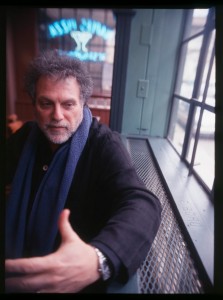I hope that the music world has been focusing plenty of attention on Sarah Cahill’s recent concert at San Quentin of works Henry Cowell wrote while he was incarcerated there. The more I read about it, the more historic it sounds, not only in terms of an understanding of Cowell’s life, but also in terms of touching the musically talented inmates held there now. Apparently there’s a long tradition of music as an outlet for prisoners there, Cowell being only the most celebrated (if that is the proper word yet) example.
Minimalists in the news: The Society for Minimalist Music now has a Facebook page, where the Society’s events will be publicized along with various performances and analyses of minimalist music. (I am on Facebook under an assumed name, so you won’t know me when you see me there.) The buzz at the moment is about Tom Johnson’s series of radio programs about composers of his generation, Music by My Friends. Not mentioned on the Facebook page yet, though it should be, is a festival this weekend at Wright State University, “Steve Reich and the Heritage of Minimalism.”

